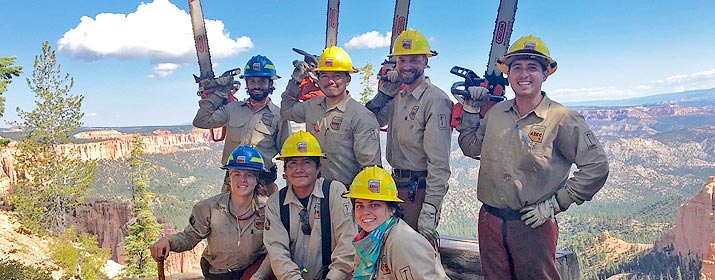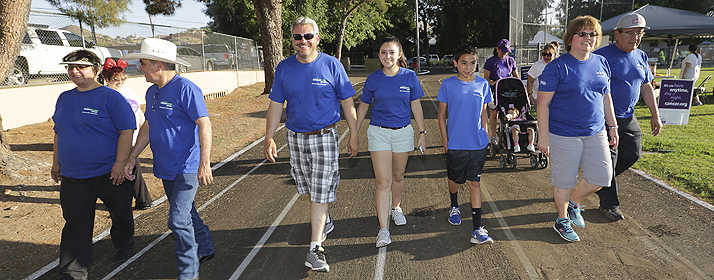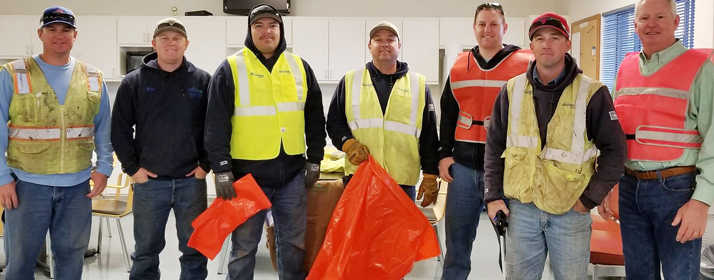
U.S. military veterans are being trained for new careers in natural resource and wildland fire management through an Arizona Conservation Corps (AZCC) program supported by UniSource Energy Services.
The AZCC’s Veterans Fire Corps (VFC) program combines classroom learning with on-the-job experience working with field crews to prepare veterans for wildfire management jobs with federal agencies. Sessions last 12 to 24 weeks, depending on project work and participants’ interest in gaining more experience. Veterans between the ages of 21-37 are eligible to participate in this federally-funded AmeriCorps program, which is offered in Flagstaff, Pinetop-Lakeside and Tucson.
Participants learn about the use of tools and chainsaws, safety precautions, wilderness first aid and fire behavior. They also learn how to safely cut down trees, dig fire lines, set prescribed burns and serve as wildfire spotters.
“Military veterans coming back from service are well prepared for federal careers when it comes to their abilities and skills, but they don’t have the technical expertise for fire careers,” said Russ Dickerson, AZCC Operations Director. “Our VFC program bridges that gap to make sure they can hit the ground running and channel their talents and abilities to assist federal agencies with fire management operations.”
Former U.S. Marine Corps Artillery Corporal Austin Aceves enrolled in the program last spring and is an assistant crew leader. Unlike some other veterans who are uncertain of their career path after returning from service, Aceves knew he wanted to become a wildfire hotshot.
“I was working in Los Angeles and the big city life didn’t appeal to me. I enjoy being outdoors and my strong work ethic and discipline from the military service transfer over to this kind of work. I’m comfortable being uncomfortable,” Aceves said. “So I moved to Arizona and was working on the AZCC’s trails crew when I heard about the VFC program. It sparked my interest.”
More than 150 Arizona veterans have completed the program since it began in 2011. Those who graduate earn several national certifications in wilderness first aid, chainsaw tree felling, firefighting training and wildland fire behavior. Many go on to work for the National Forest Service, the National Park Service or the Federal Bureau of Land Management, where wildfire hotshots are in high demand.
Unisource contributed $10,000 this year to support the program. Like all of our philanthropic contributions, the funds come from corporate resources, not customers’ rates.
“We receive federal funds for the program, but they don’t cover all of our costs,” Dickerson said. “We give participants a living allowance, tools, work vehicles and personal protection equipment. UniSource’s financial support helps cover program costs and ensures that participants have the supplies they need and are well prepared for agency work once they complete the program. We’re very appreciative.”
Aceves said he’s grateful for the opportunity to go through the program, pursue something he truly enjoys and continue to serve the community.
“The work we do – fire mitigation – benefits our state as a whole,” Aceves said. “We are thinning forests and helping to prevent fires. Our crews get a lot of work done in an extremely short time. Every day I enjoy the work more.”






